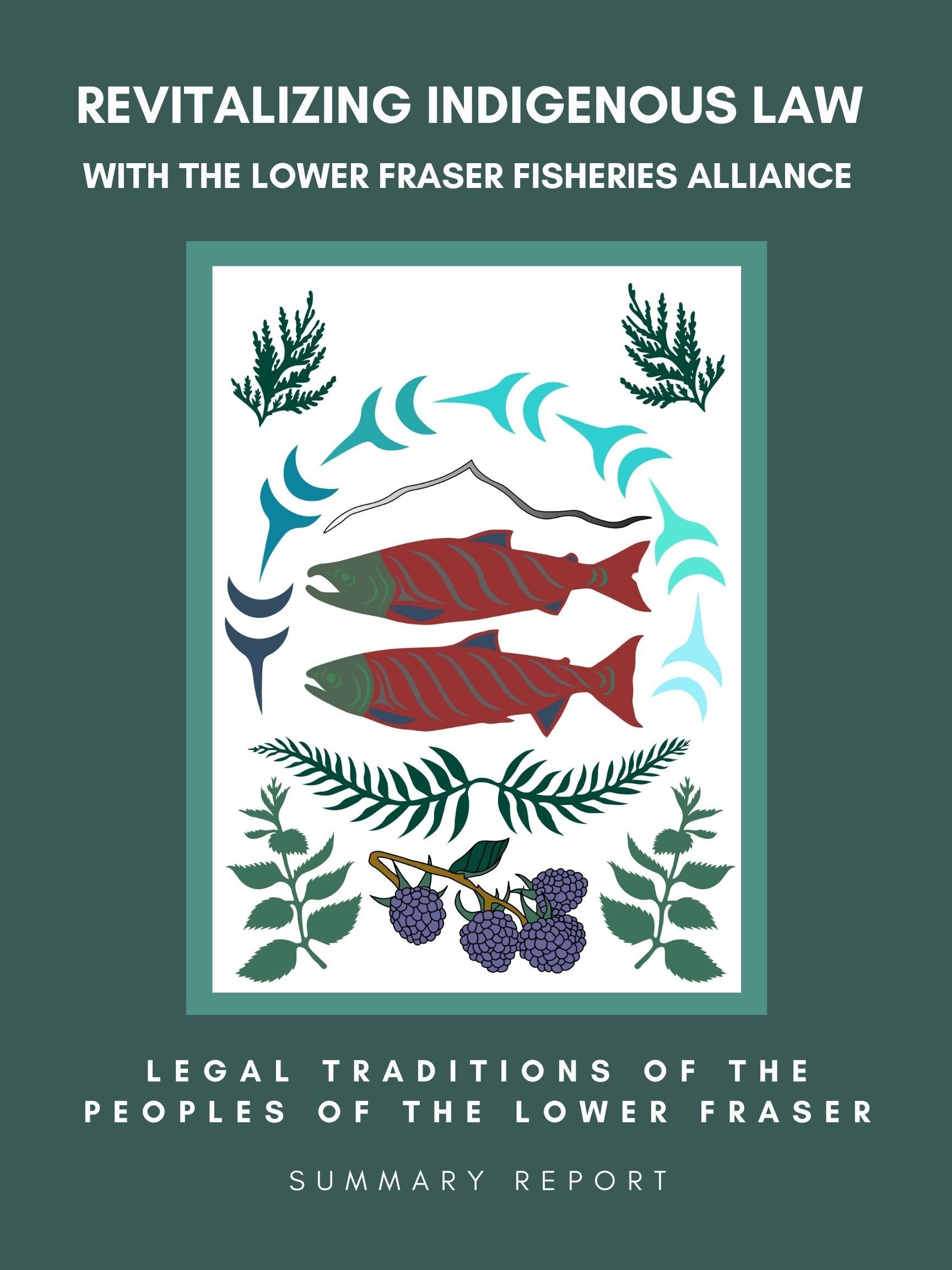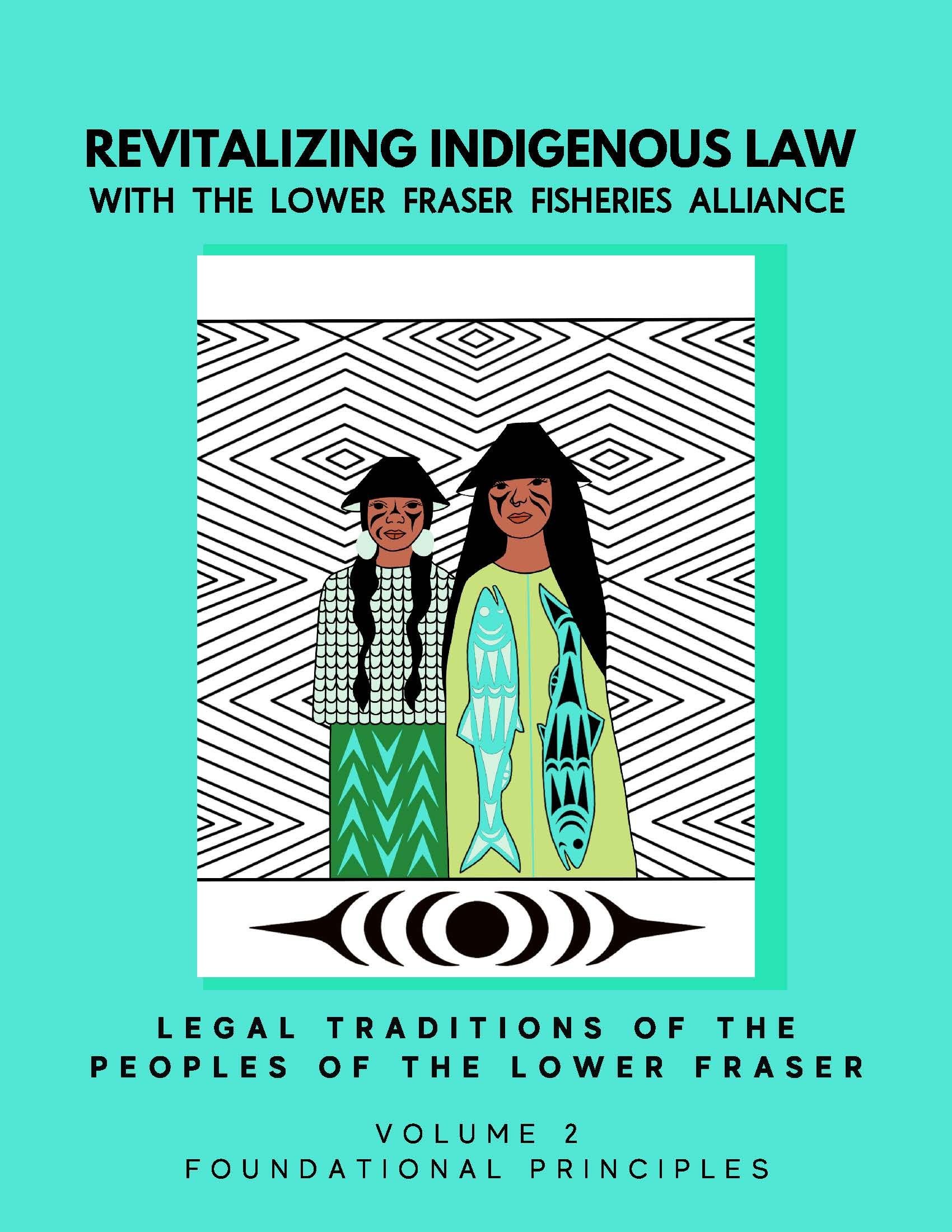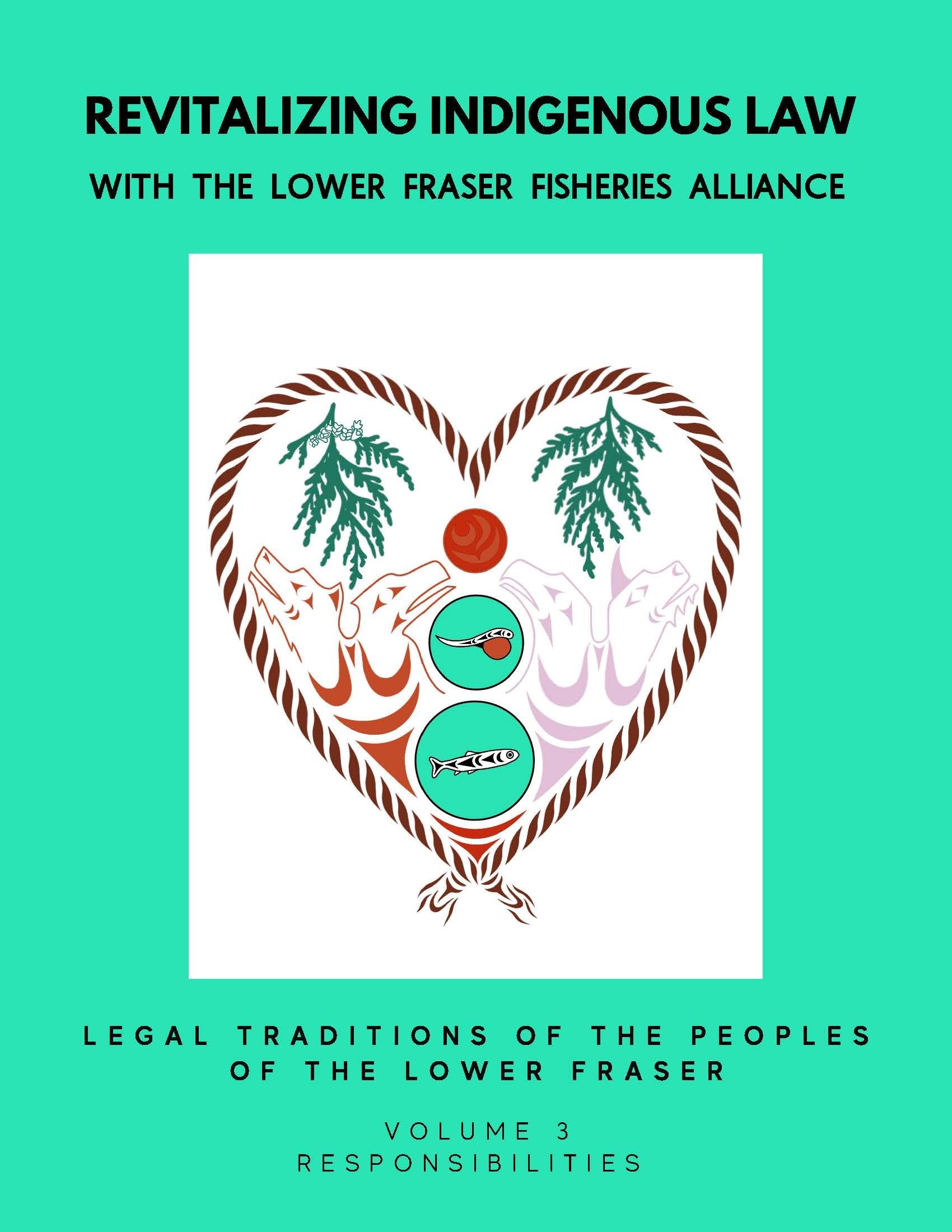Revitalizing Indigenous Law for Land, Air and Water (ReLAW)
The LFFA RELAW program is a collaborative initiative between the Lower Fraser Fisheries Alliance and the Revitalizing Indigenous Law for Land, Air and Water (RELAW) program at West Coat Environmental Law.
RELAW projects aim to revitalize Indigenous legal principles as they relates to watershed and wildlife management and governance. In our case, we are working with fisheries management traditions and principles in the Lower Fraser region.
The RELAW methodology involves gathering and analyzing Indigenous stories (sxwōxwiyám/sx̌ʷəx̌ʷəyém and sqwélqwel/sqʷelqʷəl) and Elders' knowledge to extract legal principles. Leah Ballantyne (LFFA-RELAW Coordinator) and lawyers Rayanna Seymour-Hourie (West Coast Environmental Law) engaged with over 60 knowledge holders, fishers, and community members from Lower Fraser First Nation communities in 2019. The team then spent 2020-21 writing a legal synthesis report titled "Revitalizing Indigenous law with the Lower Fraser Fisheries Alliance: Legal Traditions of the Peoples of the Lower Fraser".
The full legal reporting is being delivered through 7 volumes:
Volume 1: Foundational Principles
Volume 2: Legal Processes and Decision Making
Volume 3: Responsibilities
Volume 4: Rights
Volume 5: Standards
Volume 6: Inter-Community and International Relations
Volume 7: Consequences, Enforcement and Teaching
The program emphasizes Indigenous perspectives on sustainability, spanning seven generations, and governance that honors Aboriginal rights, title, and inherent Indigenous jurisdiction.
Staff in all departments at LFFA are working with the RELAW team to incorporate these legal principles into their own projects and workflows. This effort represents a significant step towards incorporating traditional Indigenous knowledge and legal principles into modern fisheries management and conservation strategies in the Lower Fraser region.
Learn more about RELAW learning partnership on the WCEL website.
Knowledge database and maps
LFFA Maps is an online database that can be accessed by authorized users in each First Nation. The data can be used for a variety of purposes such as referrals, habitat restoration, land use planning, rights and title, education and any other purpose that each First Nation may find it useful for.





